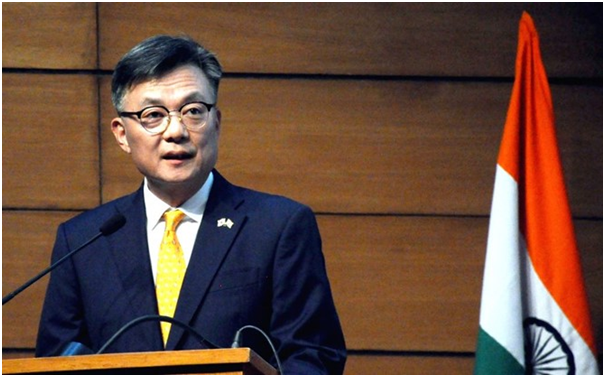
“At the last round of negotiations in
end of January, we found some willingness to conclude the negotiations within
this year. So each side will present concessions to the other side and then
hopefully we will reach a compromise,” Chang Jae-bok told
reporters on February 28 in New Delhi.
“Hopefully,
before the possible bilateral visit by our President – probably after the
elections in India and in Korea – we hope to conclude the negotiations,” the
ambassador added.
The CEPA between India and South Korea became
operational in 2010. However, the Indian government has voiced its
dissatisfaction with the agreement, with Commerce
Minister Shri Piyush Goyal saying in July 2023 saying the pact
should be more balanced and equitable.
India’s bilateral trade with South Korea grew nine
percent in 2022-23 to $27.88 billion, although India had a significant trade
deficit. While India’s exports contracted by 18 percent to $6.65 billion,
imports from South Korea jumped 21 percent to $21.23 billion.
In the first nine months of 2023-24, the total
bilateral trade stood at $20.92 billion, with India’s exports down seven
percent year-on-year at $4.76 billion and imports from South Korea up one
percent at $16.16 billion.
According
to reports, India wants greater access to the South Korean market for
certain foods such as steel, rice, and shrimp. At the
same time, South Korea is said to want greater access to India in sectors such
as auto components and chemicals.
Chang’s briefing comes ahead of the visit of External Affairs Minister Shri S
Jaishankar to South Korea on March 5-6, where he will co-chair
the 10th India-Republic of Korea Joint Commission Meeting (JCM) with his
counterpart Cho Tae-yul.
“The JCM is expected to comprehensively
review the entire gamut of bilateral cooperation and explore avenues for
further strengthening it. It will also provide an opportunity for the two sides
to exchange views on regional and global issues of mutual interest,” according to a
statement by India’s external affairs ministry.
According to Ambassador Chang, discussions between the
two foreign ministers are expected on issues such as defence, defence
production and co-operation, economic security, science and technology, and
people-to-people exchanges. “We are proud to support Korean SMEs
and start-ups and actively encourage their investments in India,” Chang said. He added
that Korean
firm Simmtech’s signing of a Memorandum of
Understanding at the 10th
Vibrant Gujarat Global Summit in January committing an
investment of Rs 1,250 crore for printed circuit board (PCB) manufacturing
could potentially “open doors for other Korean companies” in the Indian
semi-conductor space.